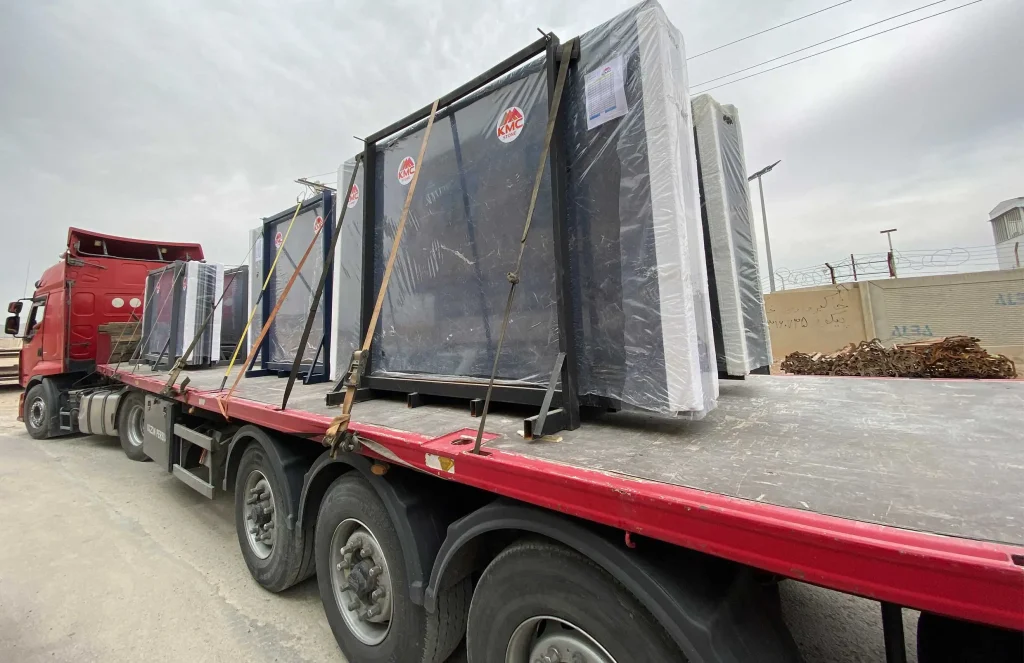Iran Stone Exports
Iran exports diverse stones: marbles, travertines, turquoise, iron ore, salt. Challenges overcome, contributing to non-oil revenue, global stone market significance.

The Types of Iranian Stones Being Exported
Iran exports stones to various countries, especially its neighboring countries. Oman, Qatar, Turkey, India, Russia, and China are some of the destinations for Iran’s stone exports. European countries like Italy, Canada, and Australia also import stones from Iran.
Oman, with its maritime border through the Oman Sea, is a suitable market for Iranian stone exports. Popular export items to Oman include stone, iron ore, and iron.
Qatar, another neighboring country with a maritime border through the Oman Sea, has strong economic ties with Iran and is a good destination for stone exports. Iranian exports to Qatar include stone, iron and steel products, gypsum, and cement.
Turkey, as Iran’s western and semi-European neighbor, provides a good market for non-oil trade and has a high demand for Iranian marble, granite, and travertine stones.
India is a significant destination for Iranian stone exports due to its large market for natural and artificial stones, especially in the construction and decoration industries. Iran exports granite, marble, travertine, and precious stones to India.
Russia, with its rapidly developing construction industry, has a growing demand for building and decorative stones. Iran exports granite, marble, travertine, and precious stones to Russia.

China, being one of the largest stone markets in the world, has a high demand for building and decorative stones. Iran, with its diverse range of stones and high-quality production, can succeed in this market. Iran exports marble, granite, travertine, and precious stones to China.
In addition to the mentioned countries, Iran can export stones to other countries as well. European countries like Italy, Canada, Germany, and Spain, American countries like the United States and Canada, and Oceanic countries like Australia are important markets for Iranian stone exports.
The destination of stone exports from Iran to countries depends on various factors such as market demand, quality and price of stones, trade relations, and the country’s production and export capabilities.
Despite Georgia’s abundant mineral resources, it currently does not require Iranian stones. However, Iran has become an importer of construction stones for Georgia due to limitations in technology and finances for identifying, extracting, and cutting stones.

Export of Stones to Europe:
Iran ranks eighth globally in the export of various types of stones, accounting for approximately 3% of the total import capacity of destination countries. European countries such as Germany, Austria, Italy, and Macedonia import unprocessed granite, marble, travertine stones, and cut stones.
Volume of Iran’s Stone Exports:
Iran has nearly 10,000 mines, including approximately 1,900 dedicated to decorative stones. The country’s mines have an overall capacity of around 47 billion tons, with 4 billion tons allocated to stone production.
This year, Iran’s stone exports amount to approximately 7 million tons, including 6 million tons of processed stones and 1 million tons of raw stone blocks and related slabs.
Challenges in Iran’s Stone Exports:
Political tensions with Iran pose significant challenges in selling stones to other countries. Banking sanctions and trade restrictions discourage trade with Iran, negatively impacting the stone export industry.
If this article has been helpful to you, you can also refer to our other articles for further reading.
Important points about marble stones Iranian Travertine Limestone Comprehensive introduction of granite stones Crystalline marble stones of Iran (White marble) An Introduction to Various Types of Building Stones







One response to “Iran Stone Exports”
[…] Iran Stone Exports […]